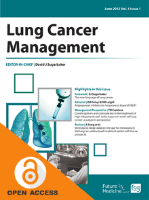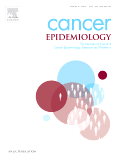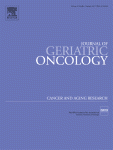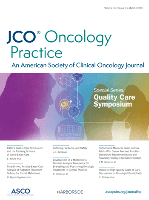
Journal of Cancer Policy
Scope & Guideline
Bridging the gap between research and cancer management.
Introduction
Aims and Scopes
- Health Policy and Economics:
Focuses on the economic aspects of cancer care, including cost-effectiveness analyses, financial toxicity, and reimbursement models. This area aims to inform policymakers and stakeholders about efficient resource allocation in cancer treatment. - Patient-Centered Care and Quality of Life:
Investigates the impact of cancer diagnosis and treatment on patients' quality of life, including health-related quality of life assessments, patient experiences, and the effects of social determinants on care. - Global Health and Equity:
Explores disparities in cancer care and outcomes across different regions, particularly in low- and middle-income countries (LMICs). This focus emphasizes the need for equitable access to cancer prevention, treatment, and support. - Innovative Treatments and Technologies:
Examines the role of new technologies, including artificial intelligence and genomic testing, in improving cancer care. This area also looks at the implications of novel therapies, such as biosimilars and immunotherapies, for policy and practice. - Public Health and Screening:
Addresses cancer prevention strategies, screening programs, and the impact of public health initiatives on cancer incidence and mortality. This area emphasizes evidence-based approaches to reducing cancer risk. - Palliative and Supportive Care:
Focuses on the importance of palliative care in cancer treatment, emphasizing the need for holistic approaches that address the physical, emotional, and social needs of patients.
Trending and Emerging
- Integration of Technology in Oncology:
There is a growing emphasis on the integration of artificial intelligence and data analytics into cancer care, highlighting its potential to enhance decision-making and improve patient outcomes. - Financial Toxicity and Economic Burden:
Recent studies are increasingly addressing the economic challenges faced by cancer patients, focusing on financial toxicity and the broader economic implications of cancer care, thus signaling a shift towards more comprehensive economic analyses. - Global Health Disparities:
Emerging research is increasingly focused on understanding and addressing global health disparities in cancer care, particularly in LMICs, emphasizing the need for tailored interventions and policies. - Patient Advocacy and Engagement:
There is a trend towards exploring the role of patient advocacy groups and the importance of patient engagement in shaping cancer policies and practices, reflecting a shift towards more inclusive healthcare approaches. - Impact of COVID-19 on Cancer Care:
The journal has seen a surge in publications analyzing the effects of the COVID-19 pandemic on cancer services and patient experiences, underscoring the need for adaptive strategies in times of crisis.
Declining or Waning
- Traditional Clinical Trials:
There is a noticeable decline in publications focused solely on traditional clinical trial methodologies. The shift towards real-world evidence and patient-centered outcomes reflects a broader trend in oncology research. - Single-Disease Focus:
Research that targets specific cancer types in isolation is becoming less common, as the journal increasingly embraces interdisciplinary approaches that consider cancer care within broader health systems and public health contexts. - Regulatory Processes:
While still relevant, the frequency of papers solely analyzing regulatory frameworks for cancer drugs has decreased, likely due to a growing emphasis on practical implementation and real-world impacts rather than solely procedural discussions. - Basic Science and Mechanistic Studies:
There appears to be less emphasis on basic science research focused on cellular mechanisms of cancer, as the journal pivots towards applied research that directly impacts policy and patient care. - Historical Perspectives:
Research focusing on historical analyses of cancer treatment and policy has waned, as the journal prioritizes contemporary issues and future directions in cancer care.
Similar Journals

Lung Cancer Management
Pioneering Insights in Oncology and Respiratory MedicineLung Cancer Management, published by FUTURE MEDICINE LTD, is a premier academic journal dedicated to the evolving field of oncology and respiratory medicine. With an ISSN of 1758-1966 and an E-ISSN of 1758-1974, this journal offers a platform for the dissemination of cutting-edge research, clinical studies, and expert reviews, all focusing on the latest advances in lung cancer treatment and management. Despite being a relatively new entry since its inception in 2014 and achieving its converged years from 2020 to 2024, it has already established itself in the Q3 quartile for both oncology and pulmonary and respiratory medicine as of 2023, according to category quartiles rankings. With a Scopus ranking of #98 in the category of Pulmonary and Respiratory Medicine and #266 in Oncology, the journal reflects a commitment to quality and relevance in its content. Although it does not offer open access, it remains a crucial resource for researchers, clinicians, and students seeking to stay informed about the latest developments and practical approaches in lung cancer management. The journal is accessible from its base in the United Kingdom, at UNITEC HOUSE, 3RD FLOOR, 2 ALBERT PLACE, FINCHLEY CENTRAL, LONDON N3 1QB, ensuring that it caters to a global audience eager to explore and contribute to this vital field of medicine.

Cancer Epidemiology
Advancing Knowledge in Cancer EpidemiologyCancer Epidemiology, published by ELSEVIER SCI LTD, serves as a premier platform for disseminating innovative research in the areas of cancer epidemiology and oncology. Operating from the Netherlands, this journal provides a critical insight into the factors influencing cancer incidence, including genetic, environmental, and lifestyle variables. With an impact factor reflecting its significance in the field, it holds a respectable Q2 ranking in Cancer Research, Epidemiology, and Oncology. The journal spans a wide range of topics and publishes studies that aim to bridge gaps in existing literature through rigorous research methodologies. Researchers and professionals interested in acquiring the latest insights and contributing to the evolving discourse on cancer epidemiology will find this journal an invaluable resource. Access to articles may be available through open access options, ensuring the widest dissemination of knowledge.

Journal of Geriatric Oncology
Empowering healthcare for aging cancer patients.Journal of Geriatric Oncology, published by Elsevier, stands at the intersection of geriatric medicine and oncology, addressing the unique needs and challenges of cancer management in older adults. Since its inception in 2010, this esteemed journal has played a pivotal role in advancing research and clinical practices, aiming to improve the quality of life and treatment outcomes for elderly cancer patients. With its impressive categorization in the 2023 Q2 quartile for both Geriatrics and Gerontology and Oncology, the journal demonstrates a noteworthy impact within its fields, ranking #153 out of 404 in Medicine – Oncology and #45 out of 116 in Medicine – Geriatrics and Gerontology. Researchers and healthcare professionals are encouraged to access critical insights through its rigorous peer-reviewed articles, which offer cutting-edge research findings and clinical applications. As the field continues to evolve, the Journal of Geriatric Oncology remains a vital resource for those dedicated to fostering innovation in geriatric oncology.

International Journal of Cancer Management
Advancing cancer care through innovative research.The International Journal of Cancer Management is a distinguished publication dedicated to advancing knowledge and research in the fields of cancer management, oncology, pharmacology, and radiology. Published by BRIEFLAND in the Netherlands, this journal serves as a vital resource for researchers, healthcare professionals, and students interested in the latest developments in cancer care and treatment strategies. With an ISSN of 2538-4422 and an E-ISSN of 2538-497X, the journal features a range of peer-reviewed articles that cover diverse aspects of cancer management, reflecting its commitment to high-quality, impactful research. The journal ranks in the Q4 category for Cancer Research and Oncology and Q3 for both Pharmacology and Surgery in 2023, signifying its growing influence in the scientific community. Through its open access format, the International Journal of Cancer Management ensures that critical research findings are accessible to all, promoting collaboration and innovation in the battle against cancer. Researchers looking to share their findings or learn more about current trends will find this journal an invaluable addition to their professional toolkit.

Gaceta Mexicana de Oncologia
Pioneering Insights in Cancer Studies and Care.Gaceta Mexicana de Oncologia, published by the SOC MEXICANA ONCOLOGIA, A C, is a prominent Open Access journal that has contributed significantly to the field of oncology since its inception in 2002. With an ISSN of 1665-9201, this journal is dedicated to disseminating high-quality research pertaining to cancer studies, making it an essential resource for researchers, healthcare professionals, and students alike. Operating out of Spain, it serves as a platform for sharing innovative findings and clinical advancements in oncology. The journal's impact in the research community is reflected in its current rankings, placing it in the Q4 category for Cancer Research and Oncology fields. Despite its emerging status within the academic tiers, Gaceta Mexicana de Oncologia aims to enhance its presence in the scholarly domain, especially during its converged years from 2009 to 2024. The accessibility of its articles empowers a wider audience, fostering collaboration and knowledge-sharing necessary for combating cancer in diverse populations.

JNCI Cancer Spectrum
Empowering researchers with cutting-edge findings.JNCI Cancer Spectrum, published by Oxford University Press, is a leading open-access journal dedicated to advancing the field of cancer research and oncology. With an impressive impact demonstrated through its Q1 ranking in both Cancer Research and Oncology categories for 2023, this journal provides a vital platform for disseminating high-quality research and innovative findings in a rapidly evolving landscape. Since its inception in 2017, JNCI Cancer Spectrum has embraced open access, enhancing the accessibility of evidence-based knowledge to researchers, professionals, and students across the globe. Additionally, it boasts notable positions in Scopus rankings, with a strong performance in both the Medicine and Biochemistry, Genetics and Molecular Biology categories. The journal is committed to its objectives of fostering collaborative efforts and encouraging dialogue among experts, making it an essential resource for anyone involved in cancer research.

Current Oncology Reports
Empowering Oncology Through Rigorous InsightsCurrent Oncology Reports is a prestigious academic journal dedicated to the field of oncology, published by Springer and based in the United States. With an impressive impact factor and ranking as a Q1 journal in the 2023 category of Oncology, it positions itself among the top-tier publications within the discipline. Established in 1999, the journal has been a vital resource for researchers, professionals, and students alike, providing comprehensive insights and the latest advancements in cancer research and treatment. Through its rigorous peer-review process, Current Oncology Reports disseminates high-quality original articles, reviews, and clinical studies that foster collaboration and innovation in the oncology community. Although it currently operates under a subscription model, the journal remains committed to accessibility, ensuring that critical findings reach a broad audience. As such, it serves as an essential platform for those dedicated to the fight against cancer, making significant contributions to the evolving landscape of oncology.

JCO Oncology Practice
Elevating Cancer Care with Cutting-Edge ResearchJCO Oncology Practice is a premier peer-reviewed journal published by Lippincott Williams & Wilkins, specializing in the intersection of oncology and health policy. Established as a vital resource since 2020, this journal serves as a platform for the dissemination of innovative research, policy analysis, and clinical practice advancements aimed at enhancing cancer care. With its impressive impact factor and recognition in the top quartile (Q1) across multiple categories including Health Policy and Oncology, JCO Oncology Practice ranks #3 in Oncology Nursing and consistently shares cutting-edge insights that drive improvements within the field. The journal is accessible to a broad audience through its open access options, ensuring that vital knowledge reaches practitioners, researchers, and students alike. By prioritizing the latest evidence-based practices and addressing contemporary challenges in cancer treatment, JCO Oncology Practice plays an essential role in shaping the future of oncology practice and policy in the United States and beyond.

ONCOLOGY-NEW YORK
Empowering Oncology Professionals with Cutting-Edge Insights.ONCOLOGY-NEW YORK is a prominent journal dedicated to the field of oncology, published by UBM MEDICA. Since its inception in 1987, the journal has served as a pivotal platform for disseminating groundbreaking research and advancements in cancer treatment, research, and education. With an ISSN of 0890-9091 and an E-ISSN of 2767-7389, it stands as an accessible resource for professionals, researchers, and students alike. The journal currently holds impressive rankings, categorized within Q3 in Oncology and Q4 in Cancer Research for 2023, reflecting its commitment to high-quality research output and contributions to the field. Despite its challenges in Scopus rankings, positioned at #283/404 in Medicine: Oncology and #188/230 in Biochemistry, Genetics, and Molecular Biology: Cancer Research, ONCOLOGY-NEW YORK continues to primarily focus on innovative cancer therapies and emerging clinical research. The journal's ongoing dedication to enhancing knowledge and understanding in oncology makes it a vital resource for all stakeholders invested in combating cancer.

Cancer Management and Research
Transforming cancer care with groundbreaking insights.Cancer Management and Research, published by DOVE MEDICAL PRESS LTD, is a leading open-access journal dedicated to advancing the field of oncology. Since its inception in 2009, this journal has established itself as a vital resource for researchers, clinicians, and healthcare professionals focused on cancer treatment and management. With its robust impact factor and impressive Scopus ranking in the 77th percentile of oncology medicine, it provides a prominent platform for sharing high-quality research. The journal covers a wide range of topics within cancer management, including innovative therapeutic strategies, clinical trials, patient care, and health policy, ensuring a comprehensive approach to current challenges in the field. Operating from New Zealand, it invites contributions that can shape the future of oncology and improve patient outcomes globally, making it an essential addition to the libraries of those engaged in cancer research and practice.